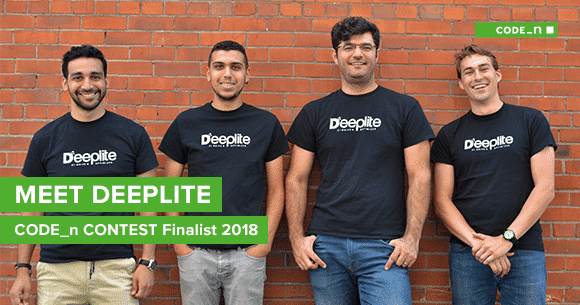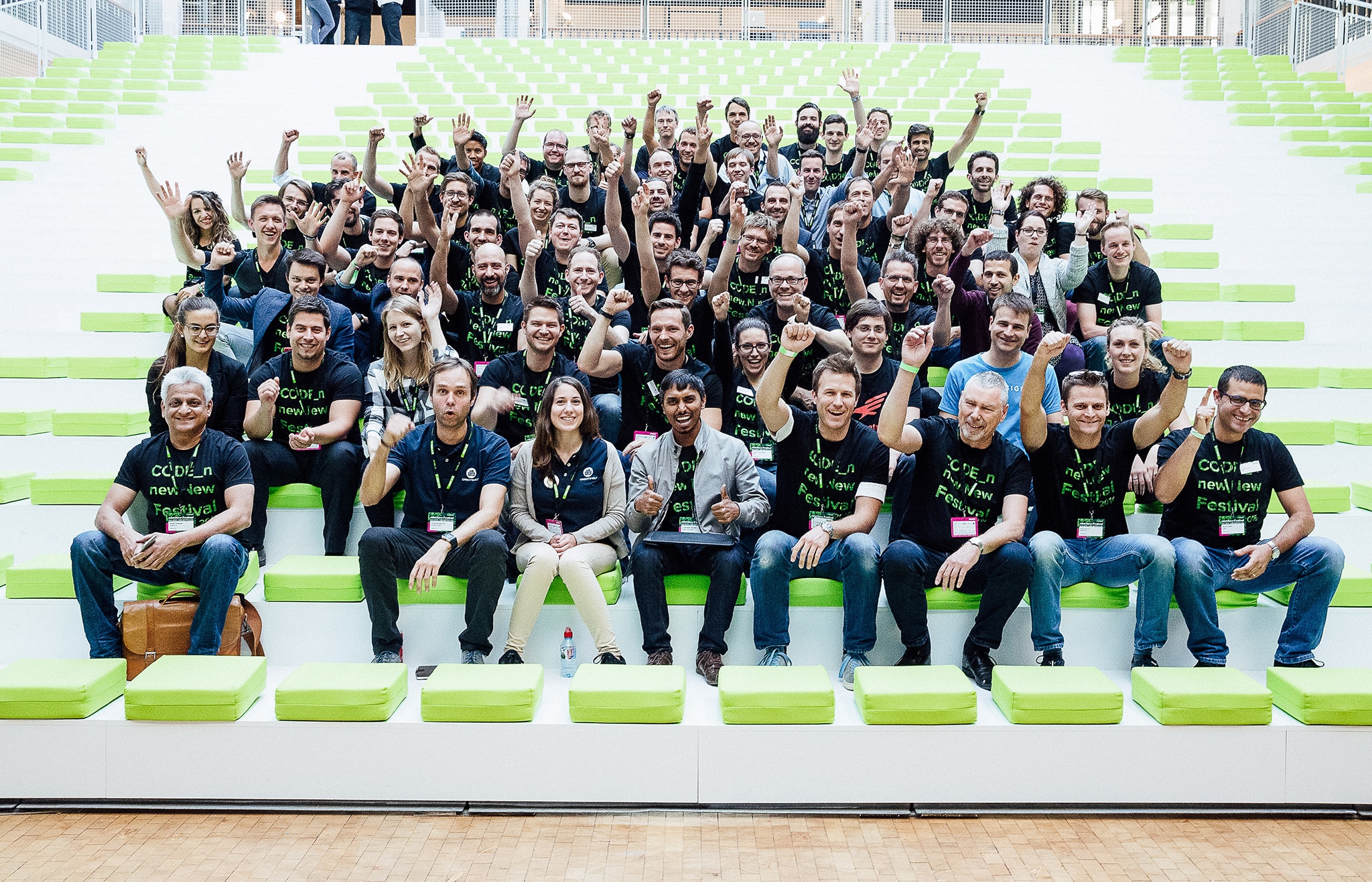MEET OUR CODE_N CONTEST FINALISTS 2018: Deeplite from Canada
 Artificial intelligence is no longer a futuristic concept, and the increasing emphasis on digital transformation means that AI technologies like deep learning, automation and machine learning have expanded beyond the cloud market onto mobile and embedded systems. Under these circumstances, it is expected that AI-embedded functionalities in devices will be highly sought to augment work processes and business value. CODE_n Finalist, Deeplite recognizes the cost and performance limitations of this process and created the AI-Driven Optimizer, a solution that satisfies the performance constraints of deep learning systems to make AI faster, smaller and more efficient and run on any device. Davis Sawyer, co-founder at Deeplite told us everything you should know about this cutting-edge technology.
Artificial intelligence is no longer a futuristic concept, and the increasing emphasis on digital transformation means that AI technologies like deep learning, automation and machine learning have expanded beyond the cloud market onto mobile and embedded systems. Under these circumstances, it is expected that AI-embedded functionalities in devices will be highly sought to augment work processes and business value. CODE_n Finalist, Deeplite recognizes the cost and performance limitations of this process and created the AI-Driven Optimizer, a solution that satisfies the performance constraints of deep learning systems to make AI faster, smaller and more efficient and run on any device. Davis Sawyer, co-founder at Deeplite told us everything you should know about this cutting-edge technology.
Iulia: What is Deeplite all about?
Davis: Deeplite is dedicated to making fundamental advancements in the field of artificial intelligence. Our AI-driven Optimizer makes deep neural networks (DNNs) faster, smaller, and energy-efficient – from cloud to edge computing. Deeplite’s patented compression technology enables economic data centers, enhances real-time DNN performance on embedded systems, and unlocks new opportunities for AI on low-power devices. We work with partners in computer vision, consumer devices, and automotive to further the capabilities of today’s intelligent systems. We aim to make a safer, robust, and intelligent world through scalable deep learning systems. By making AI applicable to real-world environments, Deeplite is making this technology more accessible and affordable.
Iulia: How did you come up with the idea?
Davis: Our two co-founders met during the Entrepreneur-in-Residence (EiR) program at the Tandemlaunch Inc. startup incubator and investment fund in Montreal, Canada in 2017. There is a creation phase for technical and business EiRs to partner up and explore emerging deep-tech ideas and patents. I, the business lead, and Ehsan, the technical lead, discovered that the rapid adoption of artificial intelligence posed challenges for mobile and embedded devices, which have limited computing power. The team visited firms to hear more about their problems with low-power AI and identified a strong need for optimization software. Ultimately, Deeplite was formed when Ehsan and I secured patented technologies, pitched our startup to TandemLaunch for a seed investment, and began innovating together.
Iulia: What are you trying to solve?
Davis: There is a widening gap in the way powerful AI technologies work in commercial environments. Because of their computational complexity, practical applications like photo analysis are offloaded to the cloud. When cloud hardware is used to deliver AI products and services to users, enterprises, governments and other resource providers, the problems they encounter include connectivity, privacy, latency, cost, and power. Furthermore, this incredible technology is simply not accessible to most people. Deeplite is about solving tough challenges with energy-efficient computing. Our AI-driven optimizers help engineers, business leaders, and end users protect their data, perform in real time, and pioneer new ways to use AI on mobile and embedded devices.

Iulia: Could you give us an example of a field or company that has already started using your product?
Davis: The mobility and transportation industry has delivered incredible solutions for daily life over the last few decades. Advancements in safety, navigation, urban mobility, and other areas have helped people across the globe enjoy better and more connected travel experiences. AI and deep learning are poised to significantly benefit the transportation sector, most importantly thanks to the advent of self-driving cars. As an industry and field of science, however, there are many challenges, mostly revolving around how vehicles can be enabled to run mission-critical AI algorithms in real time, even without internet connectivity.
This is a challenge we were fortunate to address at Deeplite with powerful industry partners. We constructed a proof-of-concept engine which optimized state-of-the-art, deep convolutional neural networks (CNNs) to run on the vehicle’s processors in real time. This enables robust-edge intelligence and embedded vision, a crucial component of scalable self-driving vehicles. Our software adapted the company’s CNNs to meet real-world constraints such as time and accuracy. Deeplite has been working with partners to address the challenges of computing environments and energy-efficiency in emerging mobility applications. This has enabled us to support the process of moving people and things around safely and efficiently. In a world that’s increasingly “smarter,” our aim is to deploy our product in applications with a strong impact on tomorrow’s economy, also solving problems faced by people today.
Iulia: Thanks a lot for the interview, Davis!
Meet Deeplite at the new.New Festival 2018 this fall, in Stuttgart!






Write a comment